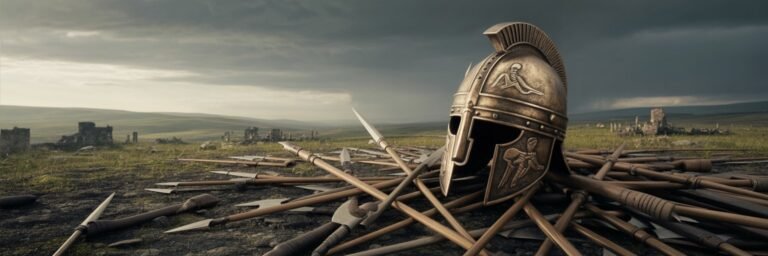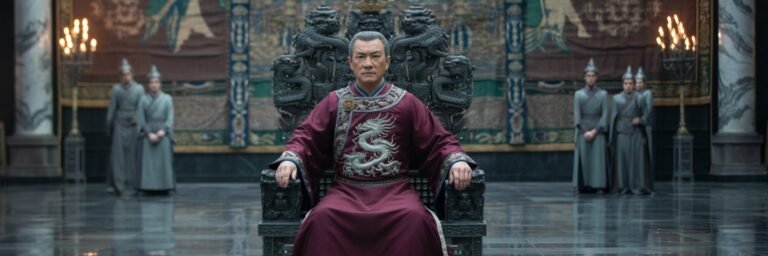INTRODUCTION
The annals of human history are replete with narratives of courage, genius, desperation, and triumph. Among these, a specific genre of mysterious tales has consistently intrigued us—the conspiracies. These self-contained microcosms of intrigue, drama, and often, deceit, have both reflected and constructed our reality. From the killing of Julius Caesar to the alleged plot behind Lincoln’s assassination, these unknown and unverified narratives have tickled our collective curiosity and have become an integral part of our cultural dialogue.
HISTORICAL BACKGROUND
Historic conspiracies, as a consistent phenomenon, can be traced back to the Greco-Roman era. However, their origins extend deep into our past, predating even the word ‘conspiracy’. In Ancient Mesopotamia, secret plots to overthrow the sovereign were considered divine transgressions. Distinct from armed rebellion, these silent insurrections snaked their way into the lexicons and legal codes of the Akkadian empire around 2250 B.C.
Later, conspiracies played an instrumental role in the political machinations of Ancient Greece, most notably in the oligarchic coup of Athens in 411 B.C. and the assassination of Philip II of Macedonia. The Roman Republic, on the other hand, bore witness to some of the most iconic conspiracies in history, such as the Pisonian conspiracy against Nero and the infamous Ides of March that led to Julius Caesar’s downfall.
THEORIES AND INTERPRETATIONS
As secretive plots weaved into the fabric of historical events, various interpretations attempted to unravel them, ranging from academic theories to imaginative speculations. In addition to providing rich material for popular fiction, these plots have spurred serious academic analyses, contributing to the development of political and social theories.
For instance, the interpretations around the Gunpowder Plot of 1605 created a paradigma of religious tension and statecraft in Stuart England, which reverberates even now in modern discussions of state surveillance and religious freedom. Similarly, conspiracy narratives surrounding the French Revolution ranging from the role of Freemasonry to the influence of intellectuals, have influenced many theories of revolutionary dynamics and bourgeois capitalism.
MYSTERIES AND CONTROVERSIES
The intricacies of historic conspiracies are ripe with mysteries and controversies, blurring the boundaries between fact and fiction. Be it the controversial theory of a second shooter involved in John F. Kennedy’s assassination or the enduring mystery of Jack the Ripper seemingly covering elite’s secrets, these tales are awash with compelling but debate-shrouded details. The alleged conspiracy behind the defeat of the Spanish Armada, dismissing it as a consequence of bad weather, stirs controversy even now. The enduring saga of the Protocols of the Elders of Zion, a proven forgery, continues to generate controversy and anguish due its anti-Semitic implications.
SYMBOLISM AND CULTURAL SIGNIFICANCE
Historic conspiracies have seeped into our cultural psyche, carrying significant symbolism. They often reflect societal fears and divisions, the uncertain boundaries between order and chaos. Crypto-historian Dame Frances Yates proposed that Elizabethan conspiracies centred around the occult and ‘Rosicrucian Enlightenment’ were symbolic of the tension between the burgeoning scientific revolution and the established church. These narratives have further been exploited in popular culture, becoming tropes in cinema, literature, and even modern folklore.
MODERN INVESTIGATIONS
Contemporary technology and investigative tools have breathed new life into efforts to decipher these enduring enigmas. Forensic and cognitive sciences have reshaped our understanding of key events and pivotal characters involved in these plots. For instance, linguistic analysis of the Hitler Diaries – infamous forgeries that were initially touted as historical revelations – revealed their fallacious nature. Similarly, reassessments of autopsy reports and ballistic evidence have raised crucial questions about the official explanation of Kennedy’s assassination, uncovering potential inaccuracies and inconsistencies in the Warren Commission report.
LEGACY AND CONCLUSION
The legacy of historical conspiracies is multi-faceted, influencing politics, society, and culture. They have not just become an important part of our historical narrative but also a framework for understanding uncertainty and processing sociocultural anxieties. They constantly remind us of the unstable boundaries of knowledge, the darker underbellies of power, and the enduring human fascination with what is hidden, dangerous, and forbidden.
While these narratives are open to manipulation and misunderstanding, they also reveal the known and unknown facets of our collective history, offering a unique prism to engage with the past and the present alike. As we continue further into the unpredictabilities of the 21st century, these historic conspiracies still resonate, evolving into new forms, carrying forward their legacy of intrigue, speculation, and a constant reshaping of truth and history.
Therefore, an in-depth study of these conspiracies, coated in rumors, mystique, and hidden facts, emerges not only as an engaging exercise in unraveling these interlaced threads of the past but also as a sobering confrontation with the complexities of power, secrecy, public narrative, and the elusiveness of truth. In this pursuit, it is crucial to nurture the spirit of critical inquiry while maintaining a responsible approach to these enticing tales from our histories.






